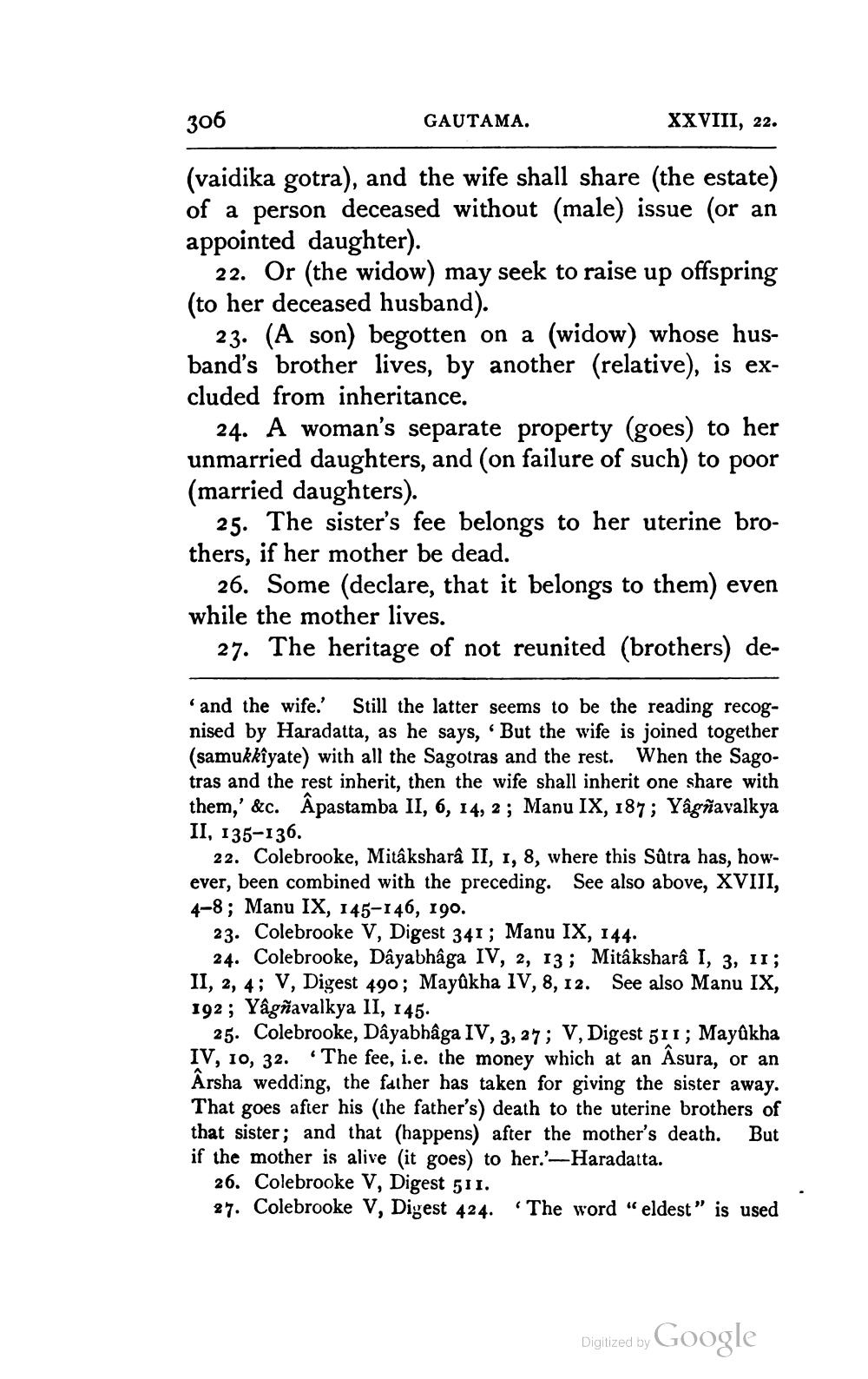________________
306
(vaidika gotra), and the wife shall share (the estate) of a person deceased without (male) issue (or an appointed daughter).
GAUTAMA.
XXVIII, 22.
22. Or (the widow) may seek to raise up offspring (to her deceased husband).
23. (A son) begotten on a (widow) whose husband's brother lives, by another (relative), is excluded from inheritance.
24. A woman's separate property (goes) to her unmarried daughters, and (on failure of such) to poor (married daughters).
25. The sister's fee belongs to her uterine brothers, if her mother be dead.
26. Some (declare, that it belongs to them) even while the mother lives.
27. The heritage of not reunited (brothers) de
and the wife.' Still the latter seems to be the reading recognised by Haradatta, as he says, 'But the wife is joined together (samukkîyate) with all the Sagotras and the rest. When the Sagotras and the rest inherit, then the wife shall inherit one share with them,' &c. Âpastamba II, 6, 14, 2; Manu IX, 187; Yâgñavalkya II, 135-136.
22. Colebrooke, Mitâksharâ II, 1, 8, where this Sûtra has, however, been combined with the preceding. See also above, XVIII, 4-8; Manu IX, 145-146, 190.
23. Colebrooke V, Digest 341; Manu IX, 144.
24. Colebrooke, Dâyabhâga IV, 2, 13; Mitâksharâ I, 3, 11; II, 2, 4; V, Digest 490; Mayûkha IV, 8, 12. See also Manu IX, 192; Yâgñavalkya II, 145.
25. Colebrooke, Dâyabhâga IV, 3, 27; V, Digest 511; Mayûkha IV, 10, 32. The fee, i.e. the money which at an Asura, or an Arsha wedding, the father has taken for giving the sister away. That goes after his (the father's) death to the uterine brothers of that sister; and that (happens) after the mother's death. But
if the mother is alive (it goes) to her.'-Haradatta.
26. Colebrooke V, Digest 511.
27. Colebrooke V, Digest 424. The word "eldest" is used
Digitized by
Google




